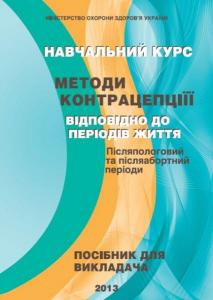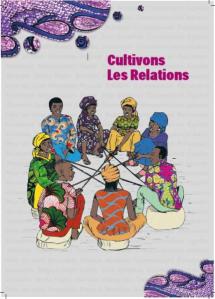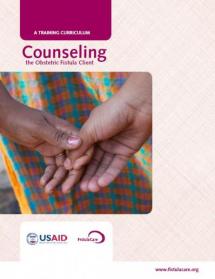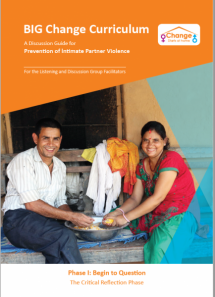Curriculum for Methods of Contraception: Post-partum and Post-Abortion
This curriculum is from the Healthy Women of Ukraine (HWUP) program. The goal of HWUP, which runs from 2011-2016, is to protect the reproductive health of Ukrainian women and couples by increasing the appropriate and effective use of modern methods of contraception as an alternative to unintended pregnancy and associated abortion. HWUP was a follow-on project to an earlier program, Together for Health, which ran from from 2006-2011.
Evaluation of the project thus far shows the following;
- 7.8 million Ukrainians have been reached with the program’s messages
- More than 25,000 people, mainly youth, have participated in FP/RH education sessions
- 87% of education session participants plan to use modern family planning methods in the future
- The number of access points for family planning and reproductive services has increased more than 300% in HWUP partner oblasts
- More than 2,600 health care providers have been trained in modern family planning approaches and counseling
This is a curriculum for a 3-day training on methods of contraception during the post-partum and post-abortion period. It includes a description of what should be covered on each day and was developed to train healthcare providers who provide FP/RH services to improve their quality of service for women in the post-partum and post-abortion period
Source: Healthy Women of Ukraine Program (HWUP)
Date of Publication: March 25, 2019
SIMILIAR RESOURCES
Tools
Examples
- Family Planning Global Handbook
- Zika and Pregnancy: Questions and Answers
- Hormonal Contraception and HIV - Technical Update
- WHO Pregnancy Management in the Context of Zika Virus
- COVID-19: Long Term Health Effects
- COVID-19 Vaccination Training Compendium
- Dengue Clinical Case Management Online Course
- Anti-Virus: The Covid-19 FAQ
- Covid-19: What Do We Know about “Long Covid”?
- Men's Reproductive Health Curriculum





